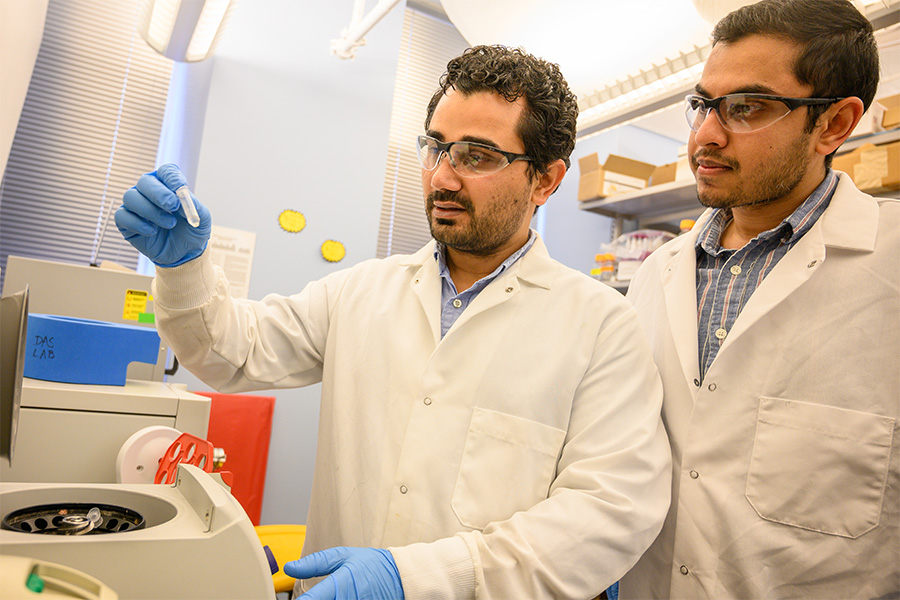Carnegie Mellon Exosome Engineering Tech Licensed to Coya Therapeutics
Carnegie Mellon University has licensed a proprietary platform for bioengineering exosomes for drug delivery to Coya Therapeutics, Inc. Through the agreement, Coya has optioned the exclusive worldwide rights to research, develop, manufacture and commercialize exosome polymer hybrids using the platform developed by an interdisciplinary team of Carnegie Mellon University chemists and engineers.
Exosomes are a nanometer-sized type of extracellular vesicle that can be shed from every cell in our bodies and can hold a variety of cargo, including proteins, lipids, metabolites and nucleic acids. Researchers worldwide have been attempting to harness the exosome as a drug delivery vehicle, but many of the techniques that have previously been developed required the use of complex molecular biology tools or degraded the exosome’s innate functionality.
Sushil Lathwal, then a doctoral candidate in the Mellon College of Science’s Department of Chemistry, and Saigopalakrishna (Sai) Yerneni, then a doctoral candidate in the College of Engineering’s Department of Biomedical Engineering, came up with an idea to surmount these obstacles. They worked alongside researchers in the laboratories of Subha R. Das, associate professor of chemistry; Krzysztof Matyjaszewski, J.C. Warner University Professor of Natural Sciences; and Phil G. Campbell, research professor of biomedical engineering and member of the Engineering Research Accelerator, to create a method that engineers exosomes with a DNA-cholesterol tether. The synthetic single-stranded DNA on the tether can bind with a complementary strand of DNA linked to a bioactive agent.
“Our research on exosome surface modification started, in the best traditions of Carnegie Mellon University, as an interdisciplinary collaborative project. Although this project began out of simple curiosity of combining our respective research interests, we are delighted to see its potential clinical translation with our venture with Coya Therapeutics,” Das and Campbell said in a statement.
Coya Therapeutics is a clinical-stage biotechnology company that develops approaches that enhance regulatory T cell (Tregs) in vivo, including autologous and allogenic Treg-derived exosome therapeutic and novel biologics. They plan to develop exosome-polymer hybrids (EPHs) to enable exosomes to be homed to proteins of interest, while delivering select payloads to targeted cells.
“This collaboration with Carnegie Mellon University further solidifies Coya’s thought leadership in the global exosome therapeutics field, adding new and exciting technologies to our unique Treg-derived exosomes platform,” stated Howard Berman, CEO of Coya Therapeutics. “Nanoengineering exosomes with such manufacturing efficiency to produce EPHs that can be customized to any surface protein, delivering growth factors or drugs, while enhancing cellular uptake and bioactivity is the future of targeted therapies.”
“The next step of our development program will be to leverage EPHs to validate functional activity of our Treg-derived exosomes that home in and bind to high profile protein targets that drive specific disease processes. Additionally, these EPHs will be loaded with targeted payloads to enhance efficacy,” stated Adrian Hepner, president and chief medical officer of Coya Therapeutics.
